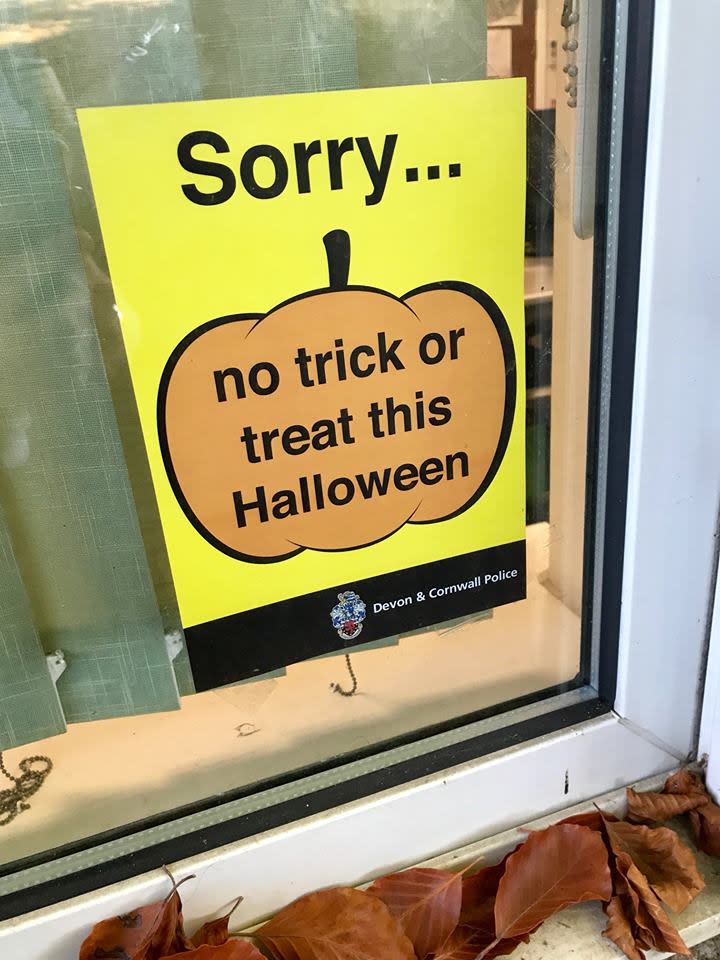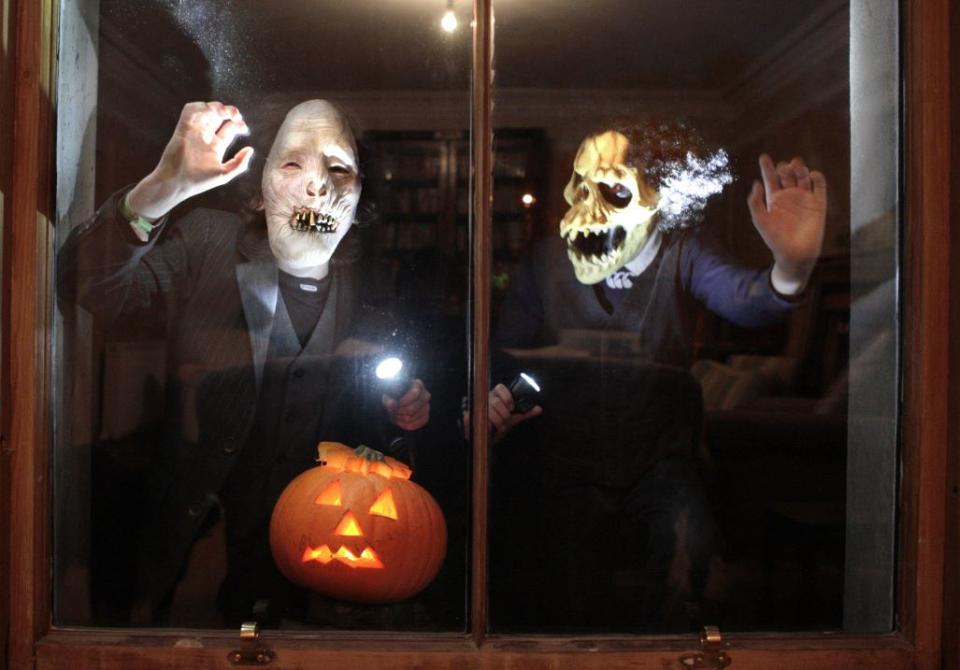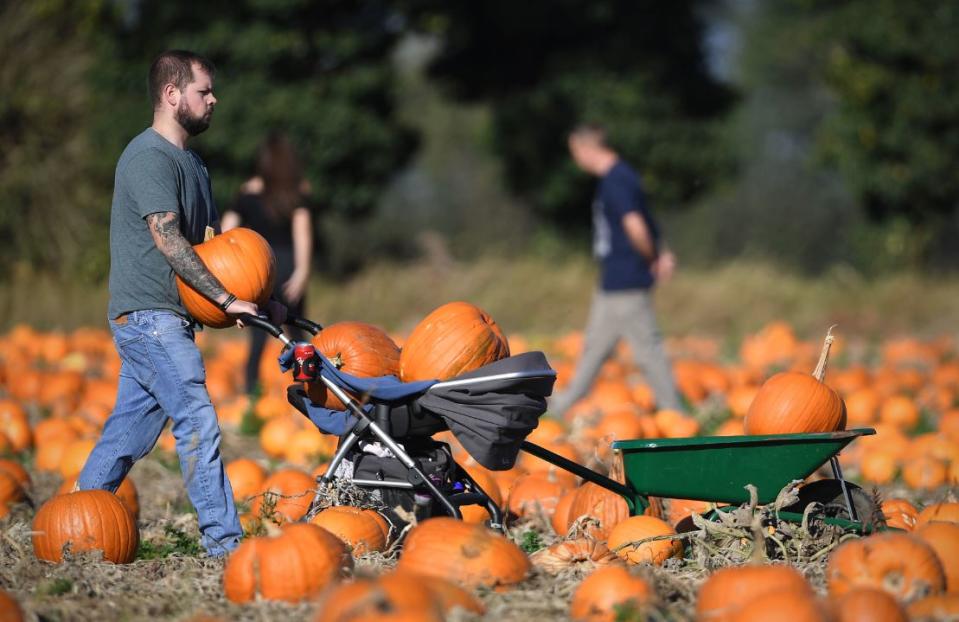No sweets here - police issue posters for people to keep Halloween trick or treaters away from the door

A police force is handing out posters to householders telling children not to trick or treat at their home during Halloween.
Devon and Cornwall police say the posters can be used by those who find trick or treat a frightening experience.
‘For some members of our community #Halloween can be a frightening experience,’ reads the message posted by police on Facebook and Twitter.
‘Download and print our “Sorry no trick or treat” poster for your window or front door, and offer it to vulnerable relatives of neighbours.’

The yellow poster features a pumpkin and can be displayed in windows.
‘In recent years we’ve seen an increase in the number of people participating in Halloween fun.’Bob Bunney from the Devon and Cornwall Police Prevention Department told the Falmouth Packet newspaper.
‘We say to anyone who’s going trick-or-treating to think about other people, particularly the elderly and vulnerable, as they may get worried or even frightened if strangers are continually calling at their door during the evening.

‘We don’t want to discourage anyone or spoil anyone’s fun, but we ask people not to call at homes displaying the “Sorry, no trick or treat” poster and not to be persistent if your requests are declined.’
The poster appears to be popular.
Responses from locals online ask where they can get the posters.
Halloween, or All Saints’ Eve, is a festival celebrating the dead and is thought to date back to the early Celtics, has become an increasingly popular celebration in the UK.
In 2001, YouGov estimated that Brits spent some £12 million on Halloween products such as sweets , pumpkins and costumes.
By last year that had risen to an estimated £320 million.

 Yahoo News
Yahoo News 

